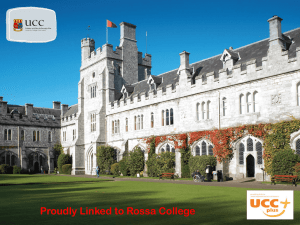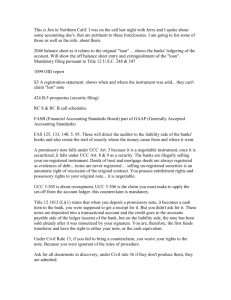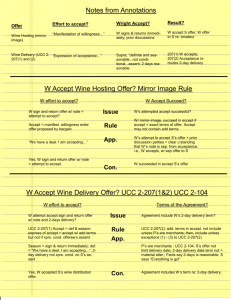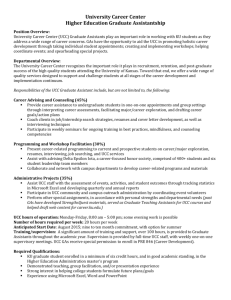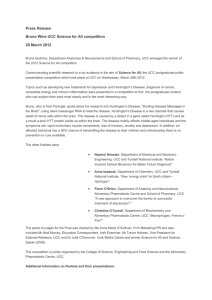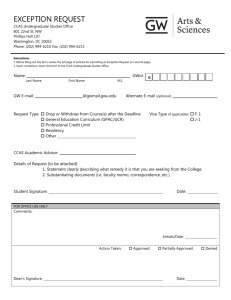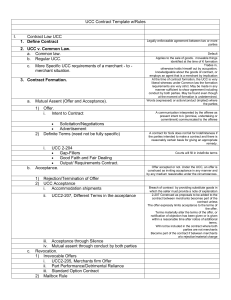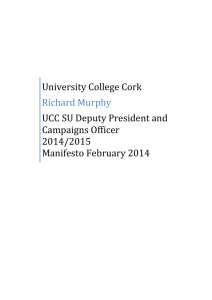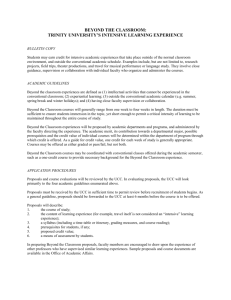Larissa Hjorth
advertisement
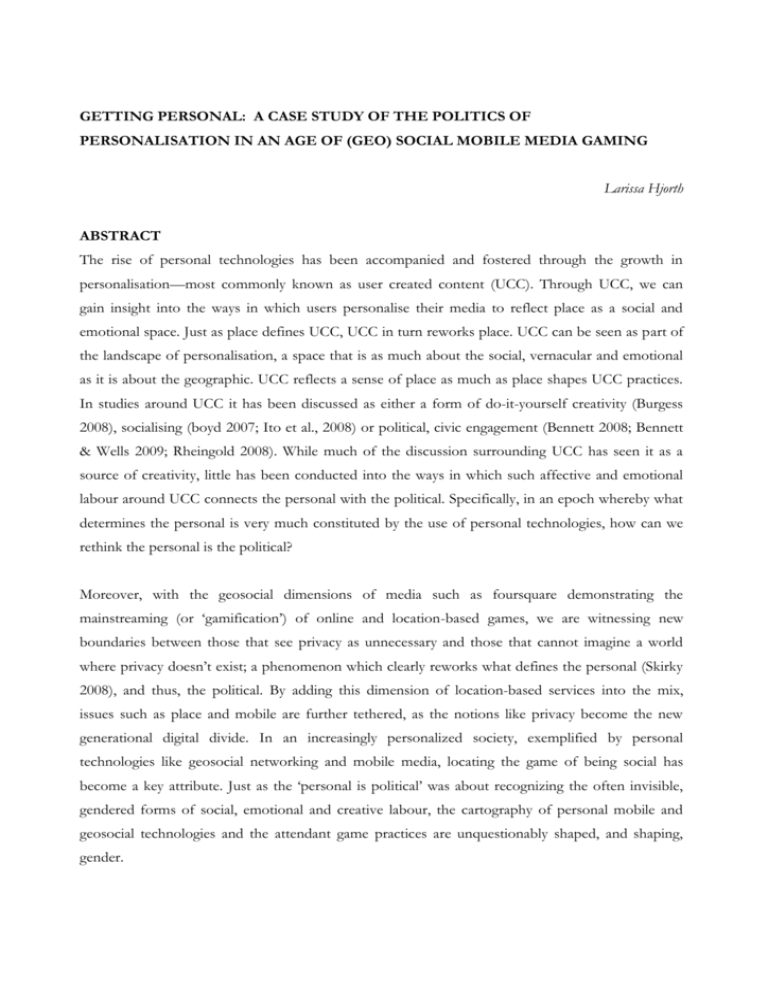
GETTING PERSONAL: A CASE STUDY OF THE POLITICS OF PERSONALISATION IN AN AGE OF (GEO) SOCIAL MOBILE MEDIA GAMING Larissa Hjorth ABSTRACT The rise of personal technologies has been accompanied and fostered through the growth in personalisation—most commonly known as user created content (UCC). Through UCC, we can gain insight into the ways in which users personalise their media to reflect place as a social and emotional space. Just as place defines UCC, UCC in turn reworks place. UCC can be seen as part of the landscape of personalisation, a space that is as much about the social, vernacular and emotional as it is about the geographic. UCC reflects a sense of place as much as place shapes UCC practices. In studies around UCC it has been discussed as either a form of do-it-yourself creativity (Burgess 2008), socialising (boyd 2007; Ito et al., 2008) or political, civic engagement (Bennett 2008; Bennett & Wells 2009; Rheingold 2008). While much of the discussion surrounding UCC has seen it as a source of creativity, little has been conducted into the ways in which such affective and emotional labour around UCC connects the personal with the political. Specifically, in an epoch whereby what determines the personal is very much constituted by the use of personal technologies, how can we rethink the personal is the political? Moreover, with the geosocial dimensions of media such as foursquare demonstrating the mainstreaming (or ‘gamification’) of online and location-based games, we are witnessing new boundaries between those that see privacy as unnecessary and those that cannot imagine a world where privacy doesn’t exist; a phenomenon which clearly reworks what defines the personal (Skirky 2008), and thus, the political. By adding this dimension of location-based services into the mix, issues such as place and mobile are further tethered, as the notions like privacy become the new generational digital divide. In an increasingly personalized society, exemplified by personal technologies like geosocial networking and mobile media, locating the game of being social has become a key attribute. Just as the ‘personal is political’ was about recognizing the often invisible, gendered forms of social, emotional and creative labour, the cartography of personal mobile and geosocial technologies and the attendant game practices are unquestionably shaped, and shaping, gender. Drawing from a decade long investigation into gendered mobile media in the Asia-Pacific region, along with more recent research into mobile games in six locations in the region (Manila, Seoul, Singapore, Shanghai, Tokyo and Melbourne) this talk will explore the specific technological, sociocultural and linguistic and geographic factors at play that are helping to shape new forms of games at the convergent cross-roads of mobile and social media and what this means to gendered media literacies. In order to do so I will sketch some of the conceptual paradigms informing the rise of serious mobile games (‘urban mobile games”) and how this can be traced through notions of place and co-presence; I then go on to discuss the different types of urban mobile games, and some of the pioneering examples in these genres. Lastly, I discuss a couple of examples of mobile and geosocial gaming in the Asia-Pacific region in order to rethink connections (and perhaps connectivity) between the personal and political.
